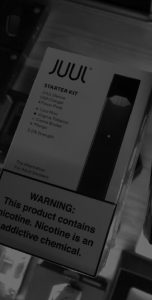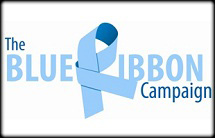JUUL from the USA to Indonesia: implications for expansion to LMICs
JUUL from the USA to Indonesia: implications for expansion to LMICs
Elizabeth N Orlan, 1 Mark Parascandola,2 Rachel Grana2
Indonesia has one of the largest tobacco markets in the world, well known for their clove cigarettes, kreteks. However, electronic cigarettes (e-cigarettes) are growing in popularity among Indonesians. While conventional cigarettes are sold in stores and kiosks,1 e-cigarettes are sold online (35.3%) and through vape shops (64.7%).2 The 2011 Indonesian Global Adult Tobacco Survey, the latest available national data, reported awareness of e-cigarettes was 10.9% and current use was 2.5%.3 Recent social media and sales data imply that e-cigarette use has grown since then. Indonesia has the second largest share of Instagram posts about vaping of any country,4 and e-cigarette sales reached 2.1 trillion rupiah (US$144.5 million) in 2018. Total sales are forecasted to reach 6.1 trillion rupiah (IDR) (US$419.6 million) by 2022.2
JUUL is the leading e-cigarette brand in the United States of America (USA), with 72% of the vapour product market share as of August 2018.5 According to their website, JUUL sells their products in the USA, Canada, Israel, UK, Italy, Germany, Switzerland, France and Russia.6 However, these products are also reported to be sold in low-income and middle-income countries (LMICs) like Indonesia, where interest in vaping and JUUL (as measured by Google Trends) has increased from 2018 to 2019.7
On 19 October 2018, JUUL filed trademark applications with the Indonesian Ministry of Law and Human Rights for formal entry into the Indonesian market. The applications sought trademarks for JUUL devices and cartridges, downloadable software for mobile devices (to use with JUUL devices) and troubleshooting services for the products.8 However, JUUL products are already being sold in Indonesia. In September 2018, while following up on an audit of vape shops in Jakarta,9 JUUL products were observed in some vape shops. Some of the products found had the US Food and Drug Administration (FDA) warning label (figure 1). Further, products are also being sold on popular Indonesian e-commerce websites including Bukalapak10 and Tokopedia11 (figure 2). During vape shop visits, store staff commented to the researchers that the products were ‘not new’, maintaining that the products were being sold in Indonesia prior to when the trademark application was submitted in October 2018.8
The current price for a JUUL starter kit in Indonesia (approximately 750 000 IDR or US$51.50 on Tokopedia)11 is comparable to current US pricing. However, that price stands in stark contrast to the price of cigarettes in Indonesia, where a premium pack of cigarettes (Marlboro Gold) is sold for 25 700 IDR or US$1.76.12 With formal entry into the
Indonesian market, we expect that a more strategic price plan would be developed to make the devices more affordable to smokers and vapers. Given JUUL’s US activities, we also expect in-country promotional events and advertising that would increase product and brand recognition among Indonesians.

Figure 1 JUUL product found in a Jakarta vape shop with the US Food and Drug Administration e-cigarette warning label, September 2018.
Tobacco products in Indonesia are regulated under the Health Law of 200913 and the Tobacco Product Safety Regulation of 2012.14 Currently, e-cigarettes remain unregulated in Indonesia, but were deemed legal products as of July 2018. Indonesia’s tax policy calls for a tax of 57% of the e-liquid price, the highest possible tax on tobacco products by law.15 However, the tax policy has been implemented based on size of the e-liquid bottle and self reported ‘quality’—either premium or non-premium—from the manufacturer or distributor, rather than ad valorem, as specified in the policy. It is unknown how the Indonesian government would tax cartridges that are prefilled with e-liquid, which is the case with JUUL, since to date, these have been less popular than refillable devices. Moreover, JUUL’s entry introduces a ‘new’ type of e-cigarette product to the Indonesian market, which may not be easily regulated under the existing e-cigarette policy.
Indonesia has relatively weak tobacco control policies and high tobacco use.16 17 For example, the only national law addressing tobacco advertising limits the broadcast window for television advertisements to between 9:30 pm and 05:00 am Western Indonesian Time.18 Banners and posters advertising cigarettes are ubiquitous on and around street-side kiosks.19 Tobacco industry sponsorship is common, especially in restaurants and bars, on social media20 and at concerts and art events; venues that typically attract youth. In this environment, e-cigarettes, particularly those products with substantial tobacco industry investment, may exacerbate conventional cigarette smoking and encourage dual product use.
Recent media reports highlight JUUL’s plans to expand to Indonesia and other LMICs.21 Indonesia may serve as a bellwether for expansion of JUUL and other e-cigarette products to LMICs. Because the WHO Framework Convention on Tobacco Control does not yet provide explicit guidance on how to approach e-cigarette regulation and the long-term harms of these products are not yet certain, many countries are unsure how and whether to regulate these products.
In the US, the FDA has implemented steps to curb youth e-cigarette use and has proposed limitations on the sale of flavoured products (other than tobacco, mint and menthol flavours). Nearby countries have banned the products (Singapore)22 and some have included e-cigarettes under existing, strict regulations pertaining to nicotine (eg, Malaysia’s Poisons Act).23 The e-cigarette industry is present in many countries with varying levels of oversight and is increasingly seeking additional business opportunities. Indonesia and other LMICs have limited capacity to monitor and regulate these novel devices which pose potential threats to public health. JUUL’s entrance into the Indonesian market and the markets of multiple countries in Asia and Europe emphasises the need to monitor trends in e-cigarette use around the world, in order to prevent increasing global use of these products, and further nicotine addiction.
Contributors ENO conceptualised this manuscript alongside MP and RG while doing a fellowship under their supervision at the National Cancer Institute. All authors contributed to drafting and editing of the manuscript.
Funding The authors have not declared a specific grant for this research from any funding agency in the public, commercial or not-for-profit sectors.
Competing interests None declared.
Patient consent for publication Not required.
Provenance and peer review Not commissioned; externally peer reviewed.
References
- Mbulo L, Kruger J, Hsia J, et al. Cigarettes point of purchase patterns in 19 lowincome
and middle-income countries: global adult tobacco survey, 2008-2012. Tob
Control 2019;28:117–20. - Vapour Products in Indonesia. Euromonitor Passport: ED. Euromonitor International,
2018. - Palipudi KM, Mbulo L, Morton J, et al. Awareness and current use of electronic
cigarettes in Indonesia, Malaysia, Qatar, and Greece: findings from 2011–2013 global
adult tobacco surveys. NICTOB 2016;18:501–7. - Laestadius LI, Wahl MM, Pokhrel P, et al. From apple to Werewolf: a content analysis
of marketing for e-liquids on Instagram. Addict Behav 2019;91:119–27. - LaVito A. E-cigarette sales are booming thanks to JUUL. CNBC 2018.
- Juul Labs-Global 2019. Available: https://www. juul. com/ global [Accessed 1 May
2019]. - Google Trends: Google, 2019. Available: https:// trends. google. com/ trends/ explore? q=
vape& geo= ID [Accessed 1 May 2019]. - Berita Resmi Merek Seri-A. in: Geografis DMDI. Jakarta Indonesia Kementerian
Hukum dan Hak Asasi Manusia Republik Indonesia; 2018. - Orlan E, Ribisl K. Sales and marketing practices of vape shops in Jakarta, Indonesia. Nusa
Dua, Indonesia Asia Pacific Conference on Tobacco or Health; 2018. - Bukalapak Indonesia, 2019. Available: https://www. bukalapak. com/ products/ s/ juulvapor
[Accessed 1 May 2019]. - Tokopedia [Website]. Indonesia, 2019. Available: https://www. tokopedia. com/ search?
st= product& q= juul [Accessed 1 May 2019]. - Pricing, cigarettes in Indonesia. Euromonitor Passport: Euromonitor; 2019.
- Dewan Perwakilan Rakyat. Undang Undang Republik Indonesia Tentang Kesehatan.
2009. - Presiden Republik Indonesia. Peraturan Permerinah Republik Indonesia pengamanan
bahan yang mengandung zat adiktif berupa produk tembakau bagi kesehatan
Jakarta, Indonesia; 2012. - Peraturan Menteri Keuangan Republik Indonesia nomor 146/PMK.010/2017
menimbang tentang tarif cukai hasil tembakau. Jakarta, Indonesia Menteri Keuangan
Republik Indonesia; 2017. - World Health Organization. Global youth tobacco Survey (GYTS): Indonesia report
2014. New Delhi, India World Health Organization Regional Office for South-East
Asia; Ministry of Health, Republic of Indonesia; 2015. - World Health Organization. Global adult tobacco Survey (GATS): Indonesia report
2011 World Health organization regional office for south-east Asia; centers for
disease control; Indonesia Ministry of health, National Institute of health research and
development; 2012. - Presiden Republik Indonesia. Undang-Undang Republik Indonesia Nomor 32 Tahun
2002 tentang penyiaran Jakarta, Indonesia; Presiden Republik Indonesia; 2002. - Beyond the school gate: bombarded by cigarette advertising. Jakarta, Indonesia:
Childrens’ Media Monitoring Foundation (Yayasan Pengembangan Media Anak);
Indonesia Childrens’ Lantern (Lentera Anak Indonesia); Smoke Free Agents; 2015. - Hefler M, Freeman B, Chapman S. Tobacco control advocacy in the age of social
media: using Facebook, Twitter and change. Tob Control 2013;22:210–4. - Potkin F, Kirkham C. Exclusive: Juul sounds out Indonesia for expansion, other Asian
countries in its sights. Reuters 2018. - Tobacco (Control of advertisements and sale) Amendment Act of 2017. Singapore:
Republic of Singapore, 2018. - Poisons Act 1952 (Revised-1989). In: laws of Malaysia poisons act 1952
(Revised-1989). ed. No 29 of 1952. Malaysia, 1989.



